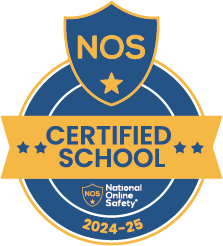History
Long Term Map
woodstock history long term map.pdf
Overview
At Woodstock Primary Academy, we provide a high-quality history education that aims to develop students’ understanding of the past and how it has influenced their lives today. Through their work in history, children will explore from the earliest civilisations to the present day. Pupils will discover how people’s lives have shaped this nation and how Britain has influenced and been influenced by the wider world. Through studies of different time periods, and researching the achievements of individuals, children will discover the nature of ancient civilisations and the expansion and dissolution of empires. These studies will go beyond European history, understanding the diversity of world history.
Here at Woodstock Primary Academy, it is our intent to instil a love of History in all our pupils. As well as teaching skills and knowledge, pupils will investigate important themes such as continuity and change, cause and consequence, similarity, difference and significance. Pupils will learn to make connections, draw contrasts, analyse trends, ask historically valid questions to create their own structured accounts, including written narratives. This includes supporting children to understand and use abstract historical terms such as ‘empire’, ‘civilisation’, ‘parliament’ and ‘peasantry’.
During their time in Foundation and Key Stage 1, children will begin by learning about their own history and develop an awareness of the past, using common words and phrases relating to the passing of time. They will know where people and events they study fit within a chronological framework and identify similarities and differences between ways of life in different periods. They should use a wide of historical terms and vocabulary. They will be able to ask and answer questions, choosing and using parts of stories and other sources to show that they know and understand key features of events. They will learn about the lives of significant individuals in the past who have contributed to national and international achievements for example, Mary Seacole and Florence Nightingale.
In Key Stage 2, it is our intent to teach History through in-depth studies, such as Roman’s, The Second World War and Ancient Egypt. During these topics, children will learn how to develop a chronologically secure knowledge, establishing clear narratives within and across the periods they study. They should note connections, contrasts and trends over time and develop the appropriate use of historical terms. They will regularly address and sometimes devise historically valid questions about change, cause, similarity and difference, and significance. They will learn how to construct informed responses that involve thoughtful selection and organisation of relevant historical information. Pupils will understand how our knowledge of the past is constructed from a range of sources.
We measure the impact of our curriculum by not just looking at the work children produce, but by talking with them at regular intervals across the year (pupil voice). We assess children’s understanding before and after each unit and celebrate successes in their curriculum work through Seesaw, displays and the school website. The curriculum is designed to make pupils think critically and encourage them to think outside the box by taking risks and learn new skills. These opportunities are extended through various opportunities such as school trips, themed events to coincide with important events including Black History Month. A history club will also run every year, to promote a love and interest in the subject. Through participating in National competitions and celebrating historical anniversaries as a whole school, the opportunities for children to enjoy and explore history are immense.





 ↑
↑


